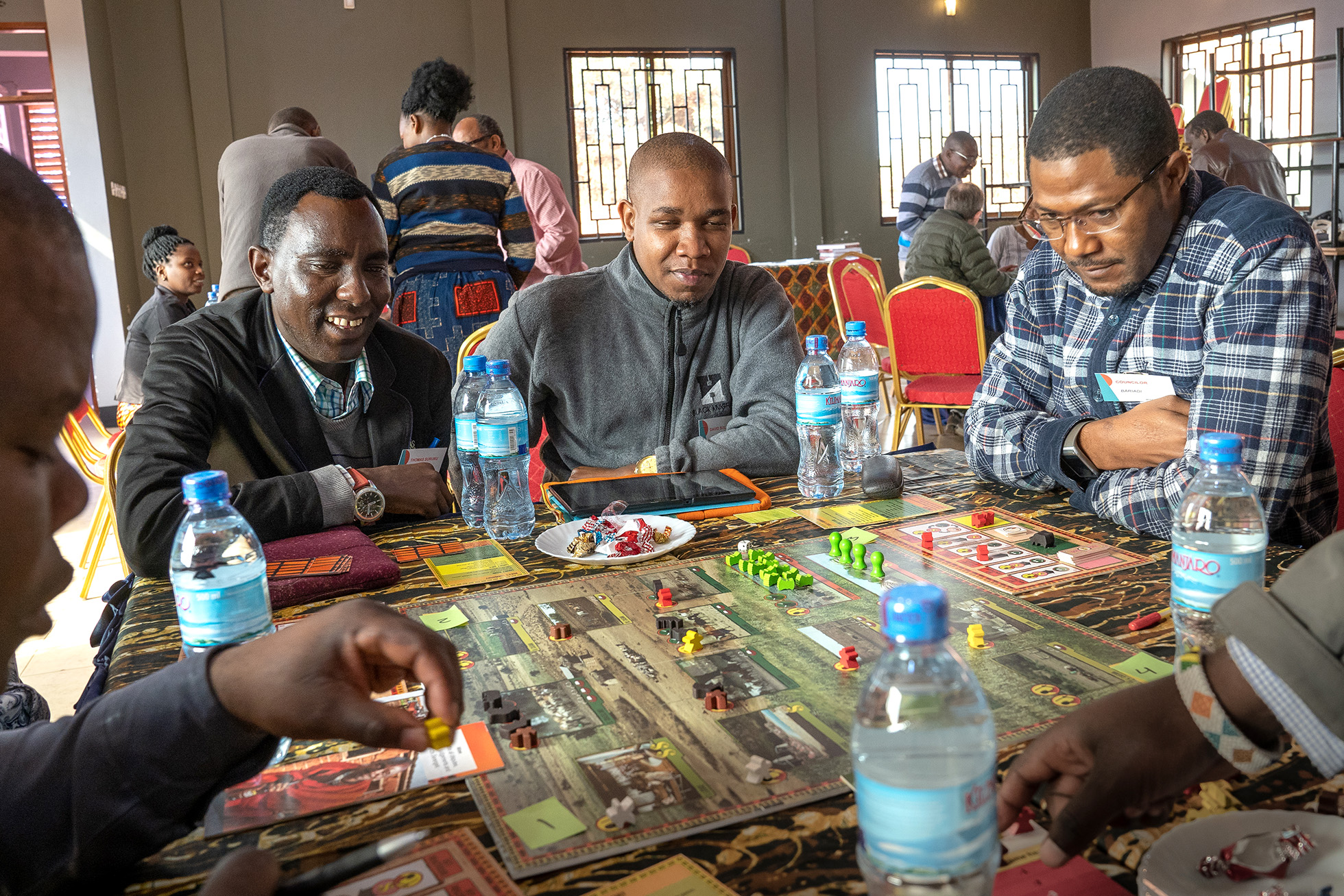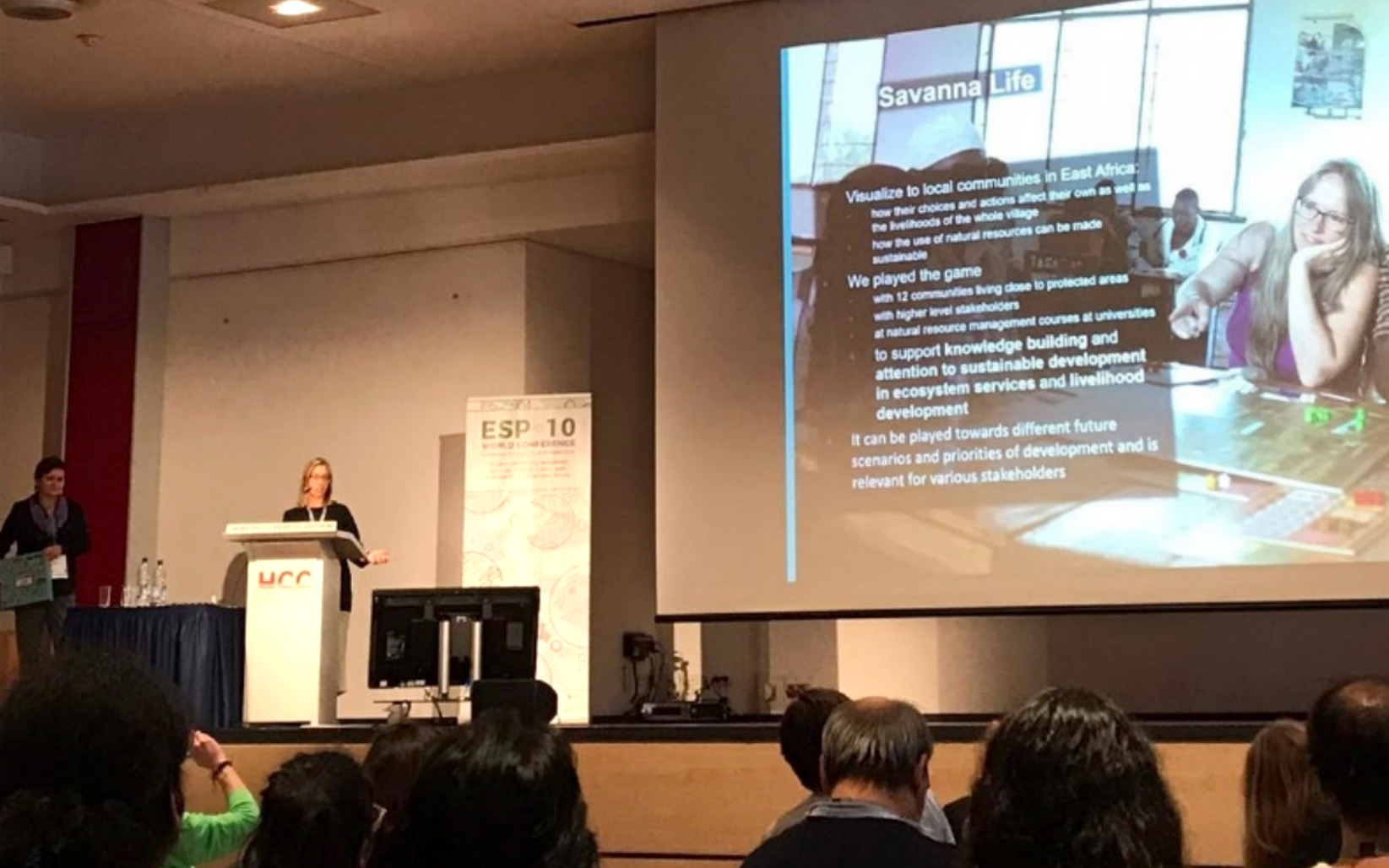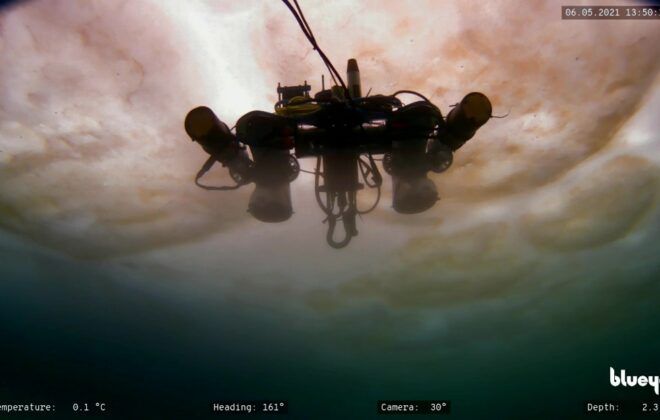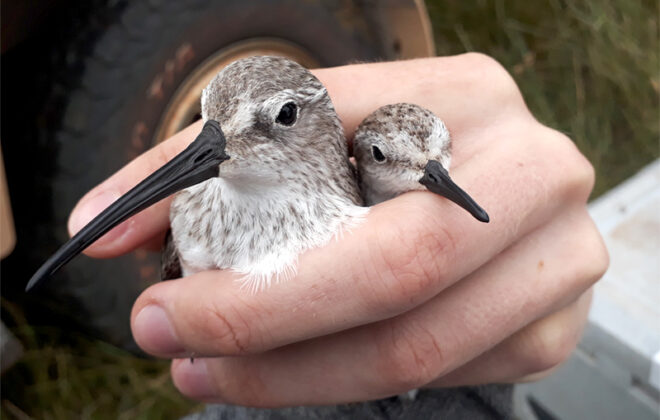The Sustainable Development Board Game “Savannah Life” awarded in Germany
The NTNU based EU project, AfricanBioServices, has created its own board game that informs local communities about conservation in the Greater Serengeti-Mara Ecosystem (GSME) in East Africa. The project team with Prof. Bente Graae at Department of Biology in lead, were just awarded the prize of education at the ESP10 World Conference in Hannover.
I am so proud of being awarded for the long and hard work we have done to develop this board game
– Professor Bente J. Graae
The board game Savanna Life was developed to promote discussing and planning for a sustainable future and is also being used for teaching purposes at NTNU’s Natural Resource Management Program in Trondheim, Norway. The idea was to use the expertise and facilities within the EU Horizon 2020 project AfricanBioServices to build a game that realistically reflects the livelihood and environmental dilemmas for building a sustainable future in local communities bordering protecting wildlife areas in East Africa.
The game simulates life in a village in the GSME subject to the increasing population growth, resulting land scarcity and extracting natural resources from the protected areas with the consequences this has in terms of sustainability as well as risks to individuals involved in such activities. Different livelihood options can be chosen in the game and, there are advantages associated with collaboration between players to find sustainable solutions. The players and the team had great fun playing the game and players felt that the game generated many new insights that they could use in real life to improve their livelihoods and simultaneously protect the environment. In the game you for instance roll the dice to determine how many children will be “born” into each household each of the five rounds of the game representing years with different seasons.
What is GSME?
The Greater Serengeti-Mara Ecosystem (GSME) is a world-renowned protected savanna area and surrounding land in Tanzania and Kenya. Thousands of tourists are coming to see the migrating wildebeests and the iconic “Big Five” each year in these parks. However, surrounding the park, the rural communities, to a great extent, live from the natural resources they can derive directly from their land and to some extent from the protected areas. They have limited access to important facilities and services and are economically deprived. How do these people see their future, and are there options for development towards a sustainable future for both people and the protected areas?
Gemini article about the board game:
Can a board game reduce the conflict between humans and animals? (In Norwegian)
The prize
ESP connects over 3000 ecosystem services scientists, policy makers and practitioners who work together in more than 40 Working Groups and a growing number of National Networks on all continents.
ES in practice award: ESP (Ecosystem Services Partnership) challenged the ESP10 participations to come up with and present innovative ideas to put the ecosystem services concept into practice. For this reason, they organized a competition, the «ES in practice award». The aim was to find interesting applications of the ecosystem services approach that go beyond research. The idea could either be related to already existing innovations or brand new ideas.
The ideas by the competing candidates were presented with small presentations at the conference and the conference participants could vote for their favorite ideas. The three ideas with most votes went were left to compete in the final, and after extra presentations the idea for how to make the most novel and interesting way of contributing to both science and society in the field of Ecosystem Services was awarded by the conference audience.
Savanna Life won 1st Place in the Competition!
The project “Game based simulation for teaching about stakeholder behavior in natural resources management” is partly funded by the rector initiative NTNU Teaching Excellence, Dept. of biology and the NV-faculty. The team consists of Bente J. Graae, Hans Peter Hartsteen, Martin R. Nielsen, Thor Harald Ringsby, Maja Grünzner, Kristoffer S. Fjællingsdal and Christian A. Klöckner.

Ida Johanne Ulseth
Ida Johanne Ulseth is an adviser at the Faculty of Natural Sciences. She works with innovative education and learning and teaching support at the faculty.
Search
Søk
Categories
- Arctic Research
- Arkitektur
- Bærekraft
- Bioingeniørfag
- Biologi
- Biology
- Biomedical Laboratory Science
- Biotechnology
- Bioteknologi
- Chemical Engineering
- Chemistry
- Climate
- Computer Science
- Datateknologi
- Digital
- Elektronikk
- Energi
- Energi
- Energy
- Engineering
- Engineering
- Environment
- Food Science
- Forskning
- Fysikk
- Fysikk
- Havbruk
- Informasjonsteknologi
- Informasjonsteknologi
- Ingeniørvitenskap
- Kjemi
- Kjemisk prosessteknologi
- Kjemisk prosessteknologi
- Kreftbehandling
- Kybernetikk
- Marine Technology
- Materialer
- Materials Science
- Materialteknologi
- Matvitenskap
- Meninger
- Miljø
- Min ph.d.
- My PhD
- My PhD
- My postdoc
- Nanotechnology
- Nanoteknologi
- Ocean
- Oil and gas
- Physics
- Research
- Simulering og visualisering
- Spør en forsker
- Studentliv
- Sustainability
- Ukategorisert
- Universitetsliv
- University Life
Kategorier
- Arctic Research
- Arkitektur
- Bærekraft
- Bioingeniørfag
- Biologi
- Biology
- Biomedical Laboratory Science
- Biotechnology
- Bioteknologi
- Chemical Engineering
- Chemistry
- Climate
- Computer Science
- Datateknologi
- Digital
- Elektronikk
- Energi
- Energi
- Energy
- Engineering
- Engineering
- Environment
- Food Science
- Forskning
- Fysikk
- Fysikk
- Havbruk
- Informasjonsteknologi
- Informasjonsteknologi
- Ingeniørvitenskap
- Kjemi
- Kjemisk prosessteknologi
- Kjemisk prosessteknologi
- Kreftbehandling
- Kybernetikk
- Marine Technology
- Materialer
- Materials Science
- Materialteknologi
- Matvitenskap
- Meninger
- Miljø
- Min ph.d.
- My PhD
- My PhD
- My postdoc
- Nanotechnology
- Nanoteknologi
- Ocean
- Oil and gas
- Physics
- Research
- Simulering og visualisering
- Spør en forsker
- Studentliv
- Sustainability
- Ukategorisert
- Universitetsliv
- University Life






